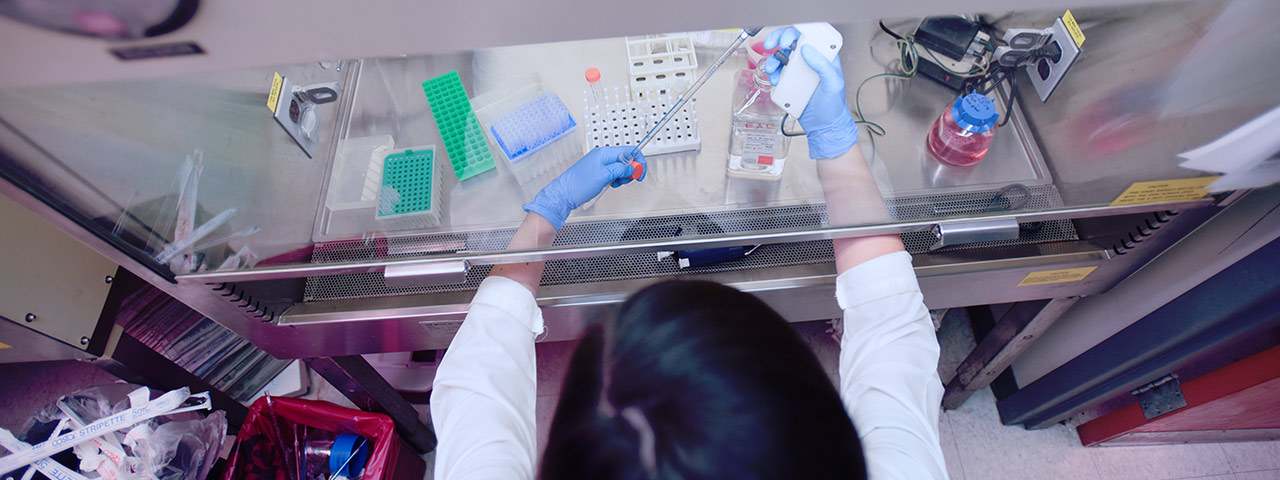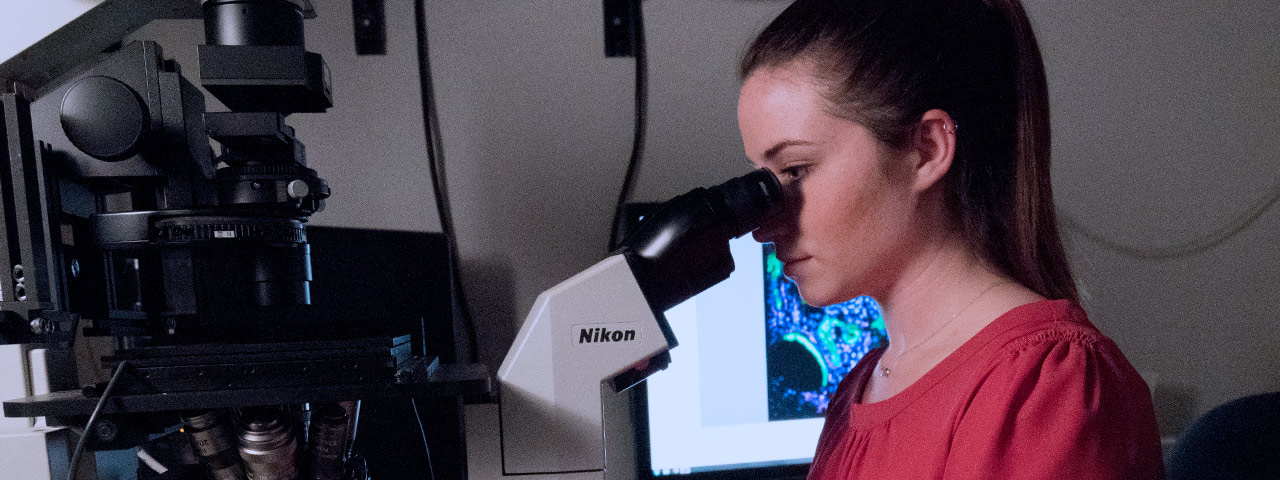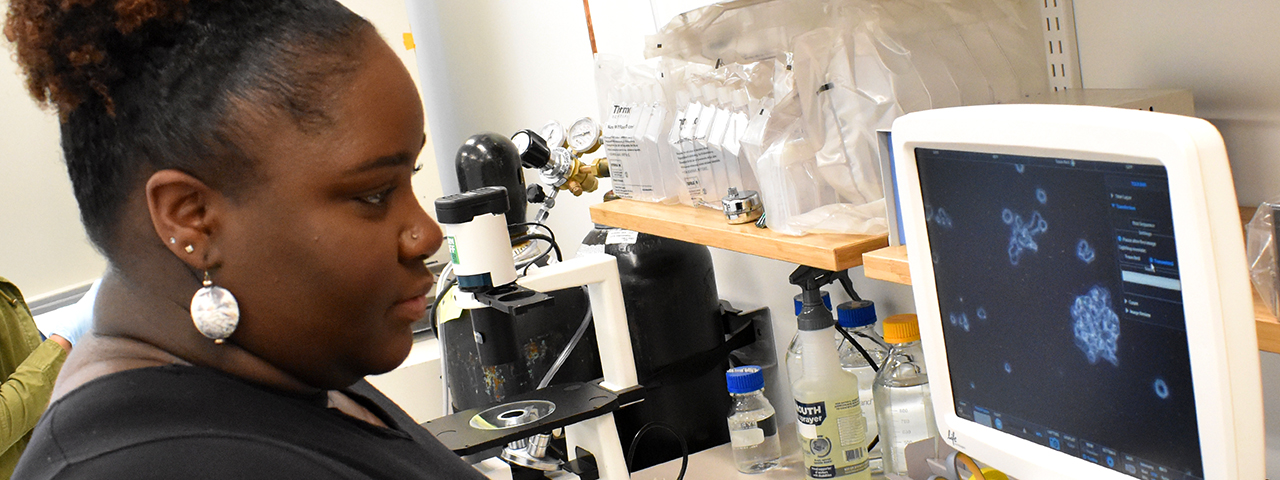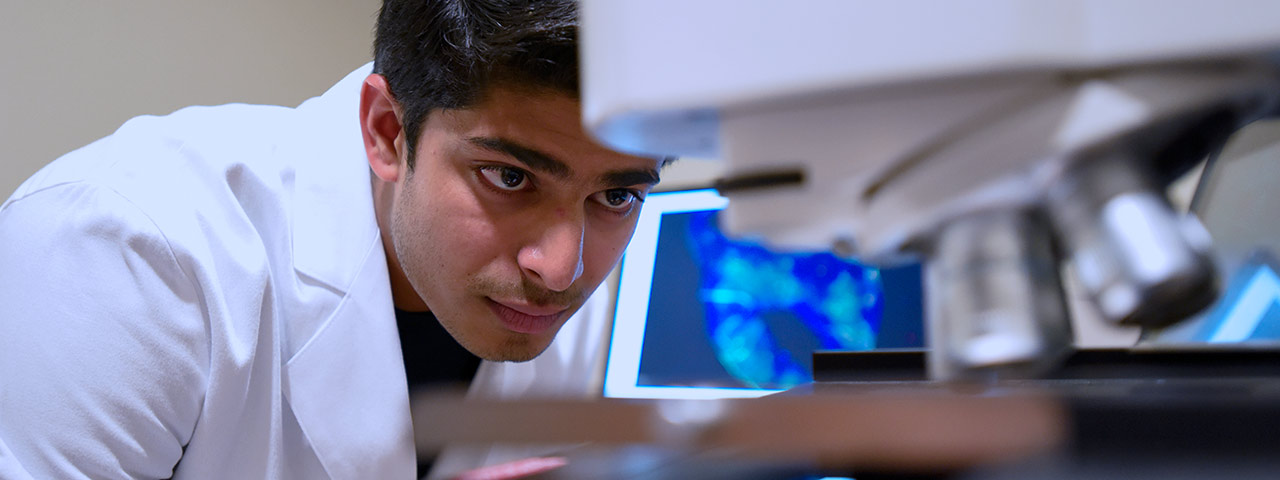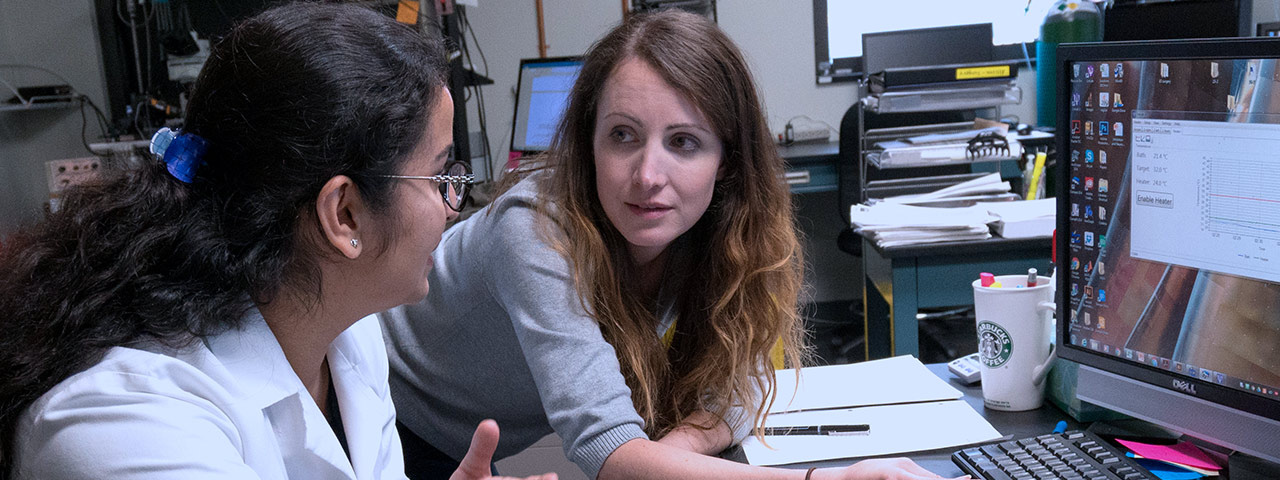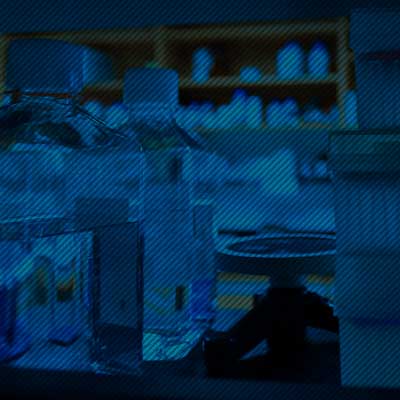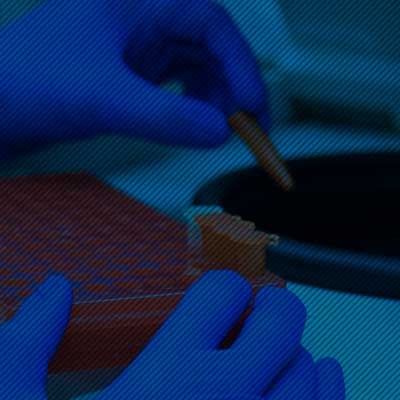GGB Theme Curriculum
Year One
In the first year, your time will be devoted to course work and exploration of research opportunities. In the first semester, you will refresh your basic knowledge in the fundamentals of biochemistry and molecular and cell biology. The second semester will be focused entirely on modern concepts of genetics. You will also perform lab rotations to gain practical experience and to become familiar with the research activities of several laboratories. By the summer between the first and the second year, you will select a mentor and a laboratory in which to do your thesis research project.
In the first and subsequent years, you will attend genetics seminar series in which faculty from outside universities, national laboratories, and UAB will discuss their research. Each semester you will also participate in the GGB journal club. Here you will present for discussion published articles covering the latest research in genetics and genomic sciences. Participants review and critique these articles, thus developing their communication skills.
Fall Semester
GGB students take the core GBS courses, along with students in the other seven GBS themes.
Spring Semester
GGB students take the following modules:
- Module 1 (January) — GBS 724: Principles of Human Genetics
- Module 2 (February) — GBS 720: Genomic Structure & Function
- Module 3 (March) — GBS 722: Bioinformatics
- Module 4 (April) — GBSC 718: Epigenetics
Summer Semester
All students are expected to take GBSC 722: Intro to Biostats and a May module. GGB requires the following module:
- Module 5 (May) — GBS 717: Methods & Scientific Logic
Year Two
After the first year you choose a thesis advisor and undertakes an original research project under your advisor's direct guidance. Throughout the period of research, additional guidance is provided by a faculty graduate advisory committee consisting of five to six members, chosen jointly by the student, the advisor, and the director of graduate studies. The committee is assembled for each student, taking into account your background and interests.
During the second year you will take specialized courses that will aid in your thesis research. At the end of this year, you will attend a course designed to teach you how to write a successful grant proposal. This will prepare you for your qualifying examination, which consists of a written proposal and its oral defense. Upon successful completion of the qualifying exam and the necessary advanced coursework, you are accepted to candidacy for the Ph.D.
The following courses are required in year two and beyond:
- GRD 717: Bioethics
- Three upper-level elective GBS (or other relevant and approved 700-level biomedical science or math courses), applicable to the student’s research project.
- Registration and participation in seminars and journal clubs.
Seminar Series
In the beginning of the second year, all GGB students must attend one of the weekly department-based seminar series of their choice that is within the scientific interest of the student.
GGB students also participate in the CMDB/GGB themes joint seminar series. This once a month seminar features presentations from upper level CMDB and GGB students about their research projects and meets in the Fall and Spring semesters.
Journal Club
GGB students are required to register for and participate in a Journal Club of their choice in the Fall and Spring semesters each academic year, from 2nd year through graduation.
Year Three and Beyond
Your major focus after completing the qualifying exam will be your thesis research. In addition to pursuing your research objectives in the laboratory, you will complete your advanced course electives, attend local scientific retreats and national and international meetings in specialized areas of interest, and participate in seminars.
The Ph.D. is awarded upon successful defense of your dissertation, including an oral presentation of your original scientific investigations and a written dissertation which demonstrates your ability to carry out creative and significant research.
Qualifying Exam
Year three, Spring semester: All students take a single qualifying examination for admission to candidacy. The format is relatively simple: you will write a thesis proposal in the format of an NIH grant proposal as part of the required grant writing class (GBS 725). Your thesis committee members serve as the qualifying exam team. During the exam, which takes place in the spring semester of year three, you will be asked questions about your proposed thesis work, as well as general knowledge questions, as appropriate.

